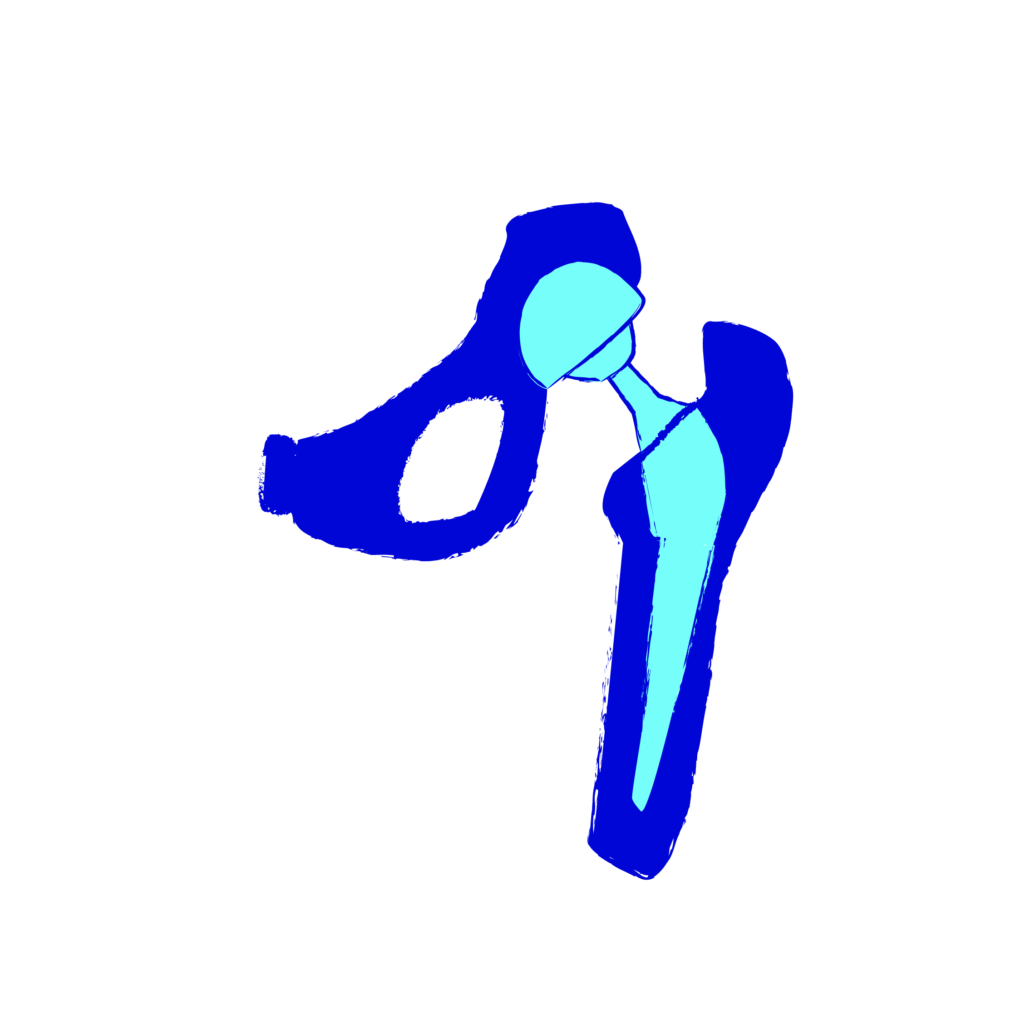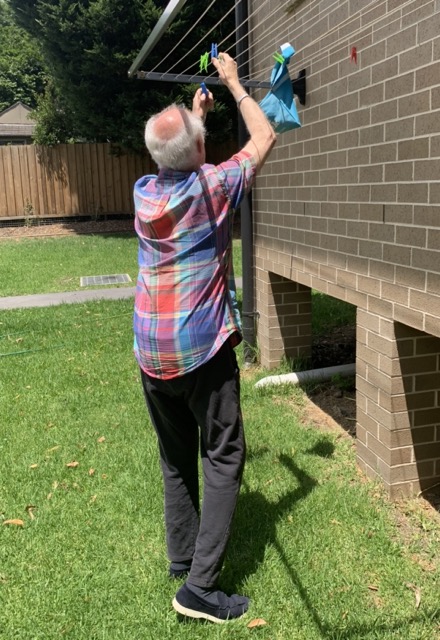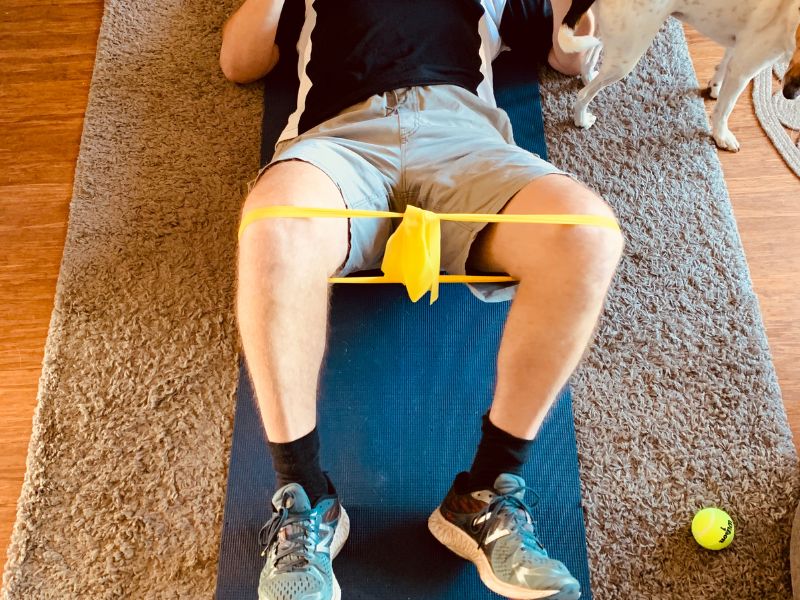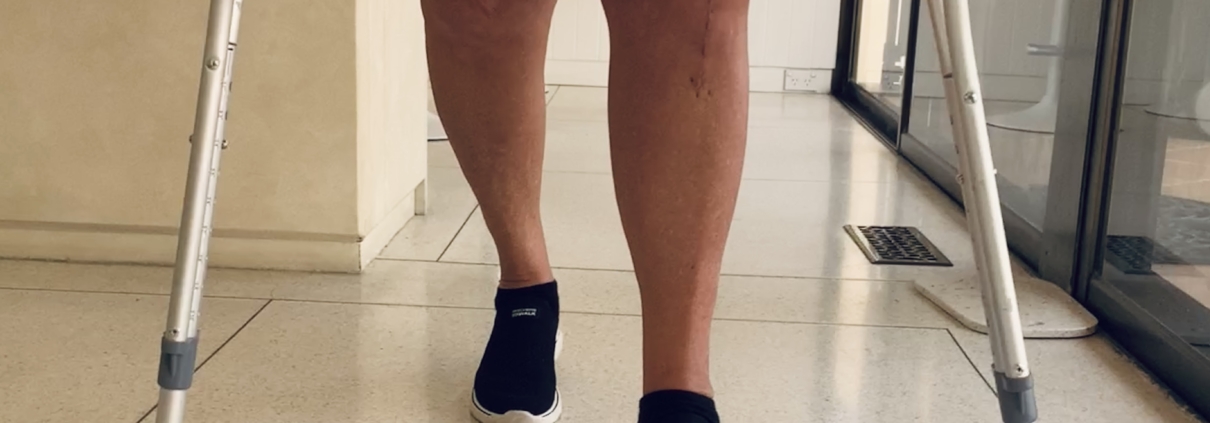Rehab at Home Following Hip and Knee Replacement
Joint replacement surgeries, particularly knee and hip replacements, are common procedures performed to alleviate pain. In Australia, around three in every thousand people undergo these surgeries each year. However, the COVID-19 pandemic has caused many of these scheduled surgeries to be cancelled, leading to longer wait times and a backlog of surgeries.

Recent research has shown that receiving physiotherapy at home can be just as effective as attending a clinic or an inpatient rehabilitation setting. While outcomes may vary based on individual factors and medical conditions, the ability to bend your knee, walk, climb stairs, and return to your normal routine can all be achieved with home rehabilitation under the supervision of a physiotherapist.

Benefits of Home-Based Physiotherapy
One of the primary benefits of home-based physiotherapy is the elimination of travel to appointments, which can be particularly beneficial for individuals with physical disabilities, lack of social support, or financial difficulties. Home-based appointments save time and help patients return to their normal routines faster.
Physiotherapists are experts in prescribing exercises, progressing rehabilitation, and guiding you through your post-operative journey. They can also recommend the correct walking aids and equipment you might need at home during the early stages of rehabilitation.

It is often the case that rehabilitation in the community allows the physiotherapist to assist clients overcome their own challenges, rather than just doing rehabilitation in controlled environments likes rehab wards and clinics.

Recovering at home also allows your physiotherapist to prescribe functional type exercises that will get you returning to function sooner. Even everyday tasks like hanging out the washing can provide the movement needed for recover

Maximising Your Rehabilitation
If you’ve recently undergone joint replacement surgery or are preparing for it, here are five tips to aid your rehabilitation process:
- Home Environment: Ensure your home is equipped to handle your daily tasks safely and with ease. This might involve purchasing simple equipment like a shower chair or a walking aid. Consulting with your physiotherapist can help you make the necessary modifications.
- Exercise Plan: Follow a home exercise plan prescribed by your physiotherapist to aid in your recovery. These plans should be specific to the individual and regularly progressed to ensure continued improvement.
- Pain Management: Use pain relief medication as prescribed by your doctor to help with pain and enable you to perform exercises. It’s important to be compliant with pain medication and not try to endure excessive pain, as this can hinder your rehabilitation. Your physiotherapist can provide guidance on managing pain effectively.
- Swelling Management: After joint replacement surgery, there is often significant swelling, especially in the first few weeks. Adopt a swelling management plan and modify activities to ensure swelling is well controlled. Your physiotherapist can help you develop a personalised plan.
- Self-Care: The first six weeks following joint replacement surgery can be challenging. Avoid scheduling any social events that require extensive travel. Have friends and family visit you, and organise extra help with domestic tasks.

Rehab in the community allows for a more functional approach. This picture shows gait re-education on 3 different surfaces.
Conclusion
Hip and knee replacements are very common among Australians. Physiotherapists play a crucial role in your recovery post-surgery and are often the healthcare professionals you will see the most once the surgery is completed. Recent research has shown that home-based rehabilitation is just as effective as clinic-based rehabilitation, making it a viable and convenient option. Be sure to get in touch with your physiotherapist, such as those at Move Healthcare, to ensure your rehabilitation is successful and you get the most out of your new joint! Visit our website or call us today to learn more about how we can support your recovery journey.



